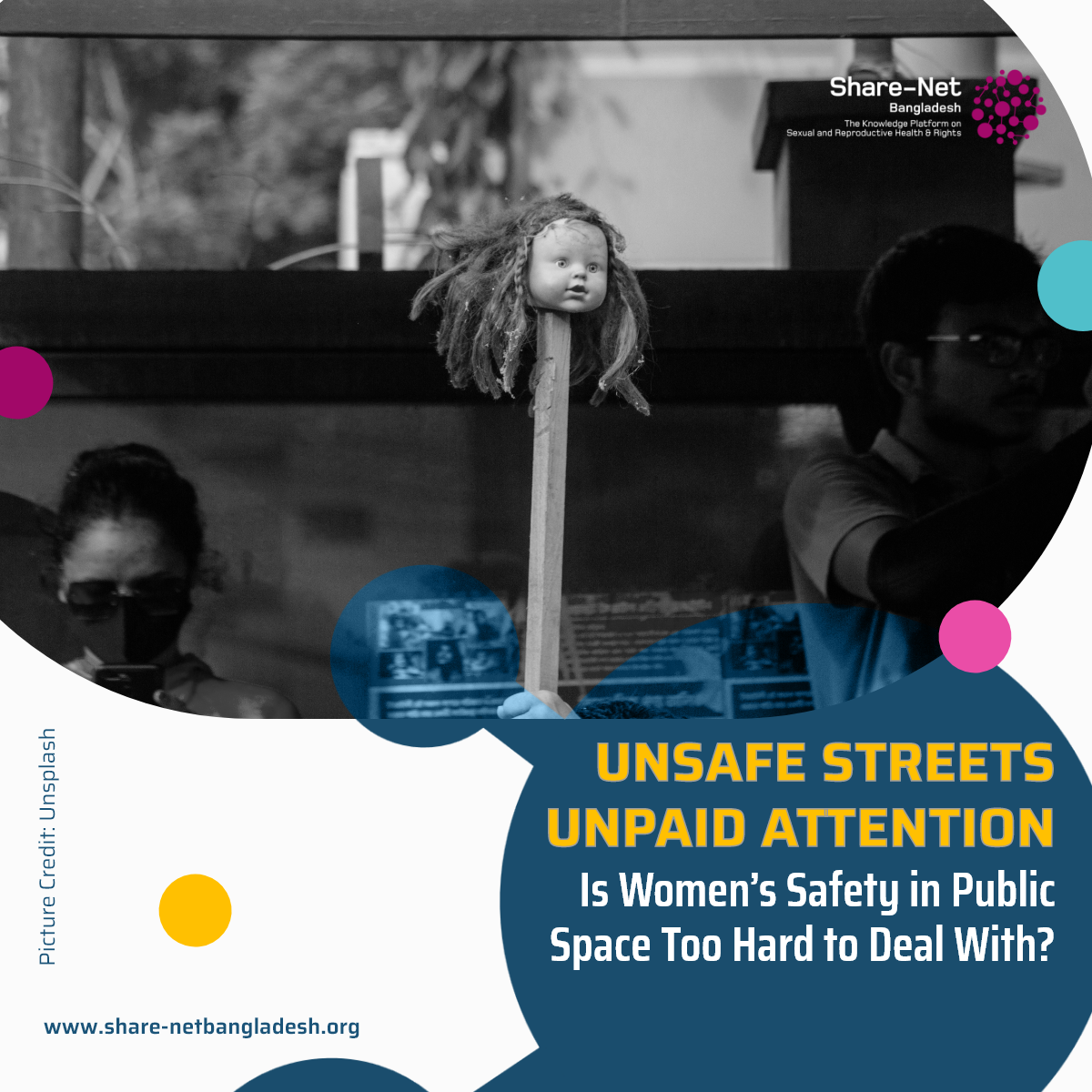Unsafe Streets, Unpaid Attention: Is Women’s Safety in Public Space Too Hard to Deal With?
Women’s safety in public spaces in Bangladesh is facing increasing scrutiny as reports of harassment and violence continue to rise. Recent data and social media accounts paint a troubling picture of how, despite the country’s progress in various sectors, gender-based violence (GBV) is being neglected. Women, whether on the streets, in markets, or even online, are becoming easy targets for harassment, while little is being done to address the issue.
In interviews and social media posts, women have shared their traumatic experiences, revealing a growing culture of lawlessness. A filmmaker, Aparajita Sangita, described how an elderly man berated her for not wearing a scarf while she was in her car at a traffic signal in Dhaka. As his verbal abuse escalated, she rolled up her window, only for the man to spit on her car in anger. This incident, though shocking, is far from isolated.
Another victim, Shaila Bithi, a prominent mountaineer, was physically attacked in broad daylight while crossing a footbridge in Dhanmondi. Her case, like many others, reflects a larger trend of harassment in public spaces, further exacerbated by the thin police presence. Activists and rights groups have raised concerns that a lack of visible law enforcement is emboldening harassers, who feel they can get away with their actions.
Women’s rights activists have called on the government to take stronger action. Khushi Kabir, a coordinator for Nijera Kori, pointed out the urgent need to restore law and order, especially as attacks against women have increased following recent political unrest. “The silence from the government and law enforcement authorities is emboldening the harassers,” she said. Kabir and others have emphasised that women’s safety should be a priority, with stronger public messaging and a visible police presence needed to deter such crimes.
Despite these calls, there has been little action. Shaheen Anam, Executive Director of Manusher Jonno Foundation, noted that no concrete steps have been taken to address the growing problem of harassment. “There is no zero-tolerance policy, and those responsible for the harassment are not being held accountable,” she said. This inaction has only fueled online trolling and hate campaigns, further restricting women’s freedom of movement and expression.
The issue of women’s safety is deeply linked to broader sexual and reproductive health and rights (SRHR) concerns. Harassment and violence in public spaces limit women’s access to education, work, and health services, including sexual and reproductive health care. When women feel unsafe, they are less likely to seek services or participate in public life, which undermines their rights and autonomy.
As Bangladesh embarks on reforms in various sectors, women’s rights advocates are urging the government to include women’s safety as a key priority. Addressing GBV is essential for ensuring that women can fully exercise their sexual and reproductive rights. This requires not only better enforcement of existing laws but also stronger public condemnations of harassment from political leaders.
If immediate steps are not taken, the sense of lawlessness will continue to grow, with dire consequences for women across the country. Without serious attention to women’s safety, the country’s progress in gender equality and SRHR will remain incomplete.
Source: The Daily Star
Picture Credit: Refat Ul Islam/Unsplash


